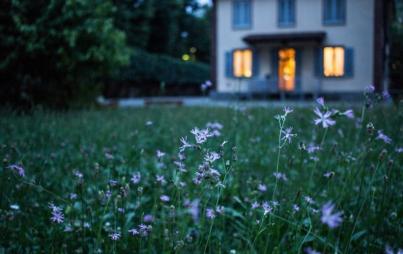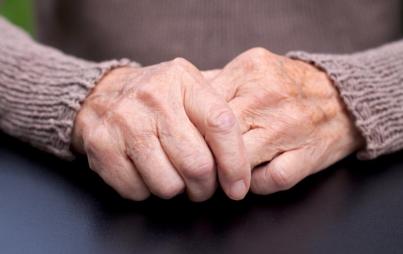
Platitudes can't take you all the way to real life transformation.
This article is the second in a two-part series. Part One was "Forgiving My Father After A Decade Of Estrangement."
On my mind as of late has been the concept and the process of letting go — of sloughing off the rusted and corroded parts of ourselves that bar us from really living as fully as we otherwise coule be — of giving up our most jagged and hardened parts that keep us, whether knowingly or not, from being our freest selves.
This is not to do with platitudes, with two-dimensional placations, or even with the motivational messages that cover those throw pillows you hope to God are ironic, but that you know aren’t meant that way at all.
This is not to reduce living well to the “LIVE LAUGH LOVE” mantra painted on a reclaimed slab of barn door, that you found on Etsy and are thinking about paying a cool four hundred dollars for. (Please, for the love of God, I am begging you: don’t. Just don’t.)
We’ve got precious and numbered days to wander this earth before we disappear into the ether. So I ask you this: When was the last time you took stock of the bitterness you’re holding onto? Are you well versed in the art of forgiveness, or are you someone who garners more satisfaction out of closing doors and walking away?
Today, I am the former: I pull from a seemingly unending well containing all my reserved stores of grace. But just a handful of years ago, I was the latter. I worked to harden my outer shell. I harbored resentment, blacklisted my transgressors, and let my inner core smolder. I was consciously broken, but I put no onus on myself to do any of the work it took to put myself back together.
In truth, I didn’t think it was possible.
I was raised in a household that taught the importance of forgiveness. I understood it to be an organic component of cultivating a healthy and happy relationship. But like most self-absorbed children and vapid teenagers, I never took any particular interest in exploring what that really entailed.
I forgot what it was to live with any semblance of joy or satisfaction in human connection. I crawled through the mud, broken, alone in a sea of friends, of family members, and even of my husband of six months, each of whom was desperate to help me clamber up and out of that grave I’d dug and subsequently fallen into.
It wasn’t until my family fell apart at the hand of my father nearly a decade ago that I really had to explore the concept of forgiveness, and of letting go. And not a bone in my body was interested in doing either of those things when it came down to it. I refused to delve into the value of such a thing, and instead started building a brick wall around my heart and my mind... and digging a grave into which I planned to toss the memory of my father.
I spent nine years in veritable emotional solitude. I forgot what it was to live with any semblance of joy or satisfaction in human connection. I crawled through the mud, broken, alone in a sea of friends, of family members, and even of my husband of six months, each of whom was desperate to help me clamber up and out of that grave I’d dug and subsequently fallen into.
But I was gone — I was huddled deep inside the innermost parts of my shattered heart, and could hear nothing more than muffled cries. Were they my own? Or were they voices of distress coming from my loved ones, hovering over me with hands outstretched? In retrospect, I have to assume it was both. At the time, I didn’t care. Nothing helped.
Living fully was beyond anything I was remotely capable of at the time. It was beyond me then, but it isn’t now. I did it; I let go.
And you? What do you carry inside yourself?
This is about living well — about really allowing yourself the freedom to walk away from the worst parts of yourself in order that you might breathe a little more deeply and sleep a little more soundly at night.
It’s about giving yourself room to breathe — permission, even — a pass, allowing you to stretch your muscles. To touch your toes, to take a whole and healing breath in, and to exhale with conviction. You must work in every way you can to free up all of the mental space currently housing your most poisonous turmoil, and to dedicate it instead to the notion that you don’t have to be a prisoner in your own mind. Nor do you have to hold anyone else captive there.
I did it; I let go. And that major shift in my thinking allowed me to do something that my former self would have deemed unthinkable: I raised my father from the dead.







